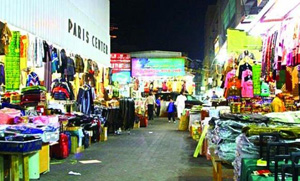Dubai: There aren’t that many job vacancies right now – but be prepared for a 15-20 per cent cut in salary expectations even for those positions that are still open. Businesses in the UAE are definitely not in a generous mood when it comes to hiring, with salary cuts now part of the new normal.
And they are definitely not willing to take on new hires without extracting some cost benefit from them. “We have seen major [salary] cuts across the board in hospitality, real estate, professional services and in retail,” said Vijay Gandhi, regional head at Korn Ferry Digital, the recruitment consultancy.
“And once the headcount correction is complete in [the local] financial services and energy sector, we may see more cuts in rewards and benefits in these categories as well.”
The salary cuts are slowly extending their way into the healthcare sector as well – just about every non-COVID-19 facing medical category is coming across cuts in the number of working hours and, by extension, their take home packages.
By end of June, more businesses and sectors in the UAE will have a better understanding of their short-term revenue prospects. By then, they will also have a better reading on what their staff strength should be – and whether there should be more trimming of the workforce. Or whether they should consider a few hires as well.
A long summer
So, realistically, it could be September before such decisions need to be taken. The coming weeks will then prove to be laden with anxiety for those who are expecting to land a job option after being laid off at their current employers.
There are multiple instances of recruitment decisions having been made in February/March, and then the companies rescinding those offers to the chosen candidates citing the business uncertainty.
“The decision to hire is taking longer – so job creation is now 4-6 weeks from interview and selection compared to 4-6 days in the past,” said Gandhi.
The lucky ones
Recently, free zones and other entities had made it easier for personnel on the visa of one entity being able to smoothly transfer to another if they are likely to be made redundant. “We are seeing more flexibility being offered by the authorities given the circumstances, and the visa transfer process is happening,” said Gandhi.
“But in the vast majority of cases, businesses are going to wait and watch before normal hiring activity starts. Organizations will look to hire from September.”
A few hires are still happening
Even in the business turmoil set off by COVID-19, a few categories are still offering jobs. At the entry level, logistics services personnel and drivers with experience remain in demand.
Not just “routine jobs, there have been confirmations in more technical roles such as procurement and operations in healthcare and e-commerce,” said Gandhi. “Employers should keep an eye for good talent and have the talent acquisition team actively looking for good profiles.
“As such, organizations are not only looking at “right sizing” in numbers but also “future proofing” on what kind of skilled talent will help them in the post-COVID-19 world.”
But for the candidates, the present will be about waiting around for the call to come.






Comments
Add new comment